Guinea worm once infected 3.5 million people every year. Thanks to heroes like Makoy Samuel Yibi, that number dropped to 14* last year. Learn more »
The Carter Center sent a large contingent to the 72nd Annual Meeting of the American Society of Tropical Medicine and Hygiene (ASTMH), held Oct. 18-22 in Chicago. Learn more »
I recently returned from a visit to the nation of Chad, the central point of our fight against Guinea worm disease. As you may know, The Carter Center has been working to eradicate this devasting parasitic disease since 1986, when cases around the world numbered almost 3.5 million a year. Learn more »
Seven countries reported finding Guinea worms in either humans or animals last year. Chad reported the highest numbers by far. Learn more »
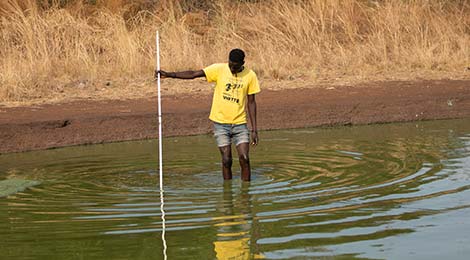 From community engagement to water treatment and filtering to dog tethering, a cluster of villages in remote western Ethiopia is applying creative strategies to protect humans and animals from Guinea worm disease, and their diligence is paying off.
Learn more »
From community engagement to water treatment and filtering to dog tethering, a cluster of villages in remote western Ethiopia is applying creative strategies to protect humans and animals from Guinea worm disease, and their diligence is paying off.
Learn more »
By Makoy Samuel Yibi, Director, Guinea Worm Eradication Program, South Sudan Ministry of Health
Makoy Samuel Yibi first met former U.S. President Jimmy Carter in 1995, after which they formed a strong relationship. In 2008, Yibi received the Jimmy and Rosalynn Carter Award for Guinea Worm Eradication for his leadership in reducing cases of the disease in what is now South Sudan. He wrote the following elegy for his mentor and hero. Learn more »
In 1986, Guinea worm disease afflicted an estimated 3.5 million people a year in 21 countries across Africa and Asia. In 2022, just 12 human cases were reported. Working closely with the countries and with support from donors and partners, The Carter Center leads the battle to eradicate the disease. Here are three stories from the frontlines. Learn more »
By Dr. Kashef Ijaz, Vice President, Health Programs, The Carter Center; Kelly Callahan, M.P.H., Director, Trachoma Control Program, The Carter Center; Dr. Emmanuel Miri, Nigeria Country Representative, The Carter Center; Dr. Zerihun Tadesse, Ethiopia Country Representative, The Carter Center
From the vantage point of a richly resourced and powerful country or society, it’s easy to believe that colonialism is a thing of the past. Unfortunately, that is not the case. The sad fact is that the effects of a colonial mind-set are alive and well in some corners of the global health community. Learn more »
In 2006, a relatively new development officer at The Carter Center, Madelle Hatch, took part in a career fair at Midvale Elementary School in an Atlanta suburb. Learn more »
By Adam Weiss, Director, Guinea Worm Eradication Program
Some of the hallmarks of the four-decade Guinea worm eradication campaign, led by The Carter Center, are its agility, data-driven decision making, deep-rooted partnerships, and commitment to prioritize the needs of the endemic countries. Learn more »
We are down to the last mile in our mission to #DefeatGuineaWorm and are all set to welcome leaders from around the world to commit to #MissionZero. Learn more »
Just 15 human cases of Guinea worm disease were reported in four countries in 2021, the lowest number ever recorded. When The Carter Center started leading the global eradication campaign in 1986, there were an estimated 3.5 million cases in 21 countries. Learn more »
By Paige Alexander, chief executive officer of The Carter Center
This month, I was pleased to sign the Kigali Declaration on Neglected Tropical Diseases, signifying the Carter Center’s 100% commitment to work with dozens of countries, donors, and organizational partners to tackle these terrible diseases Learn more »
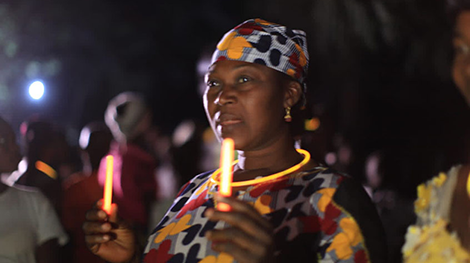 Jan. 30, 2022, marked the third annual World NTD Day, highlighting the global community’s commitment to ending neglected tropical diseases (NTDs) that cause immeasurable suffering among the world’s most marginalized communities. Together The Carter Center and our partners lit up the world as we celebrated hard-earned progress and took action to #EndtheNeglect and #BeatNTDs.
Learn more »
Jan. 30, 2022, marked the third annual World NTD Day, highlighting the global community’s commitment to ending neglected tropical diseases (NTDs) that cause immeasurable suffering among the world’s most marginalized communities. Together The Carter Center and our partners lit up the world as we celebrated hard-earned progress and took action to #EndtheNeglect and #BeatNTDs.
Learn more »
By Dr. Kashef Ijaz, vice president, health programs
Only one human disease has ever been eradicated; that was smallpox, in 1980 — a tremendous victory for humanity. The term "eradication" is defined as permanent reduction to zero of the worldwide occurrence of infection caused by a specific pathogen, with no risk of its return. Learn more »
By Paige Alexander, chief executive officer, and Kashef Ijaz, vice president, Health Programs
The 76th Session of the United Nations General Assembly opens Tuesday, Sept. 14. It is a time of great anticipation as representatives of 193 member states come together in the great hall to discuss issues and set an agenda for the coming year. World political leaders, including President Joe Biden, will give speeches that will be closely watched for clues and outright declarations regarding a wide variety of international challenges, global health among them. Learn more »
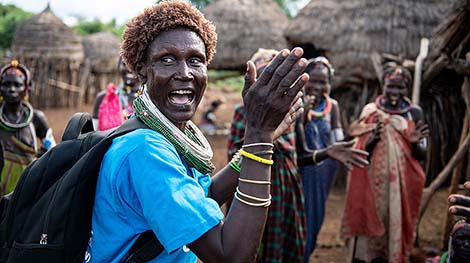 Regina Lotubai Lomare Lochilangole is a natural born motivator. She created an original song and dance to teach her South Sudan community about Guinea worm disease symptoms and prevention and rewards available for reporting suspected cases. The song was so effective that South Sudan’s Ministry of Health created a position for her within the Guinea Worm Eradication Program, titled Social Mobilizer. Lotubai now travels to different parts of the country to train other volunteers to become social mobilizers.
Learn more »
Regina Lotubai Lomare Lochilangole is a natural born motivator. She created an original song and dance to teach her South Sudan community about Guinea worm disease symptoms and prevention and rewards available for reporting suspected cases. The song was so effective that South Sudan’s Ministry of Health created a position for her within the Guinea Worm Eradication Program, titled Social Mobilizer. Lotubai now travels to different parts of the country to train other volunteers to become social mobilizers.
Learn more »
By Dr. Kashef Ijaz, vice president, health programs
Completely wiping out a disease is nearly impossible. In all of history, only one human disease has been eradicated — smallpox, in 1980 after a herculean global vaccination campaign that took decades to complete. Polio persists (albeit in small numbers) despite the availability of a highly effective vaccine since the 1950s. Ditto measles. Learn more »
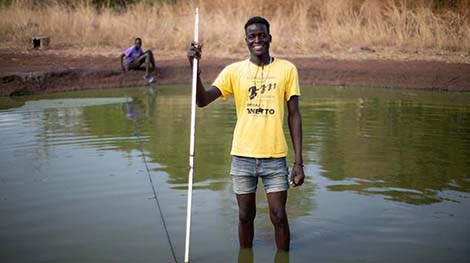 The Carter Center’s Guinea Worm Eradication Program reported just 27 human cases in six African countries in 2020, a dramatic 50% reduction from 2019. Guinea worm infections in animals also were down 20% from the previous year.
Learn more »
The Carter Center’s Guinea Worm Eradication Program reported just 27 human cases in six African countries in 2020, a dramatic 50% reduction from 2019. Guinea worm infections in animals also were down 20% from the previous year.
Learn more »
By Dr. Kashef Ijaz, vice president, health programs
The Carter Center’s neglected tropical disease programs treat and prevent Guinea worm disease, trachoma, river blindness, lymphatic filariasis, and schistosomiasis, with the goal to control, eliminate, and eradicate. Beyond the alleviation of the human suffering caused by these illnesses, this work brings ancillary benefits to communities, health systems, and infrastructure that may be just as important. Learn more »
By Paige Alexander, chief executive officer, and Kashef Ijaz, vice president, health programs
The world’s most vulnerable people work hard every day to overcome poverty and disease. They aren’t interested in handouts, but with a hand up they can get the resources they need to surmount obstacles to prosperity and peace. Learn more »
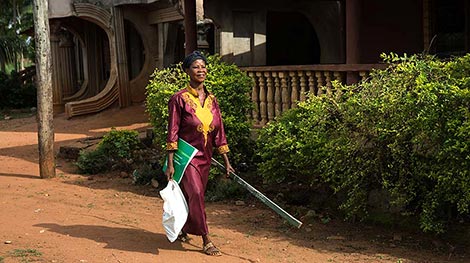 Mass drug administration, in which entire communities receive drug treatment to halt disease transmission, was interrupted or delayed, but intense work went on behind the scenes to develop sets of COVID-safe procedures.
Learn more »
Mass drug administration, in which entire communities receive drug treatment to halt disease transmission, was interrupted or delayed, but intense work went on behind the scenes to develop sets of COVID-safe procedures.
Learn more »
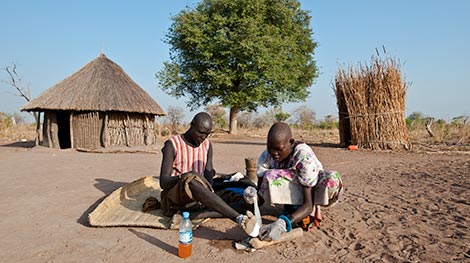 Despite the challenges of the COVID-19 pandemic, the number of human Guinea worm cases was cut in half to just 27* in 2020, The Carter Center announced Tuesday. The 27 human cases of Guinea worm disease across six African countries mark a 50% decline from the number of cases reported in 2019. Guinea worm infections in animals fell 20% in the same period, the Center reported.
Learn more »
Despite the challenges of the COVID-19 pandemic, the number of human Guinea worm cases was cut in half to just 27* in 2020, The Carter Center announced Tuesday. The 27 human cases of Guinea worm disease across six African countries mark a 50% decline from the number of cases reported in 2019. Guinea worm infections in animals fell 20% in the same period, the Center reported.
Learn more »
By Dr. Kashef Ijaz, vice president, health programs
The observance of World Neglected Tropical Disease Day on Jan. 30 (following the public launch of the 2030 NTD Road Map by the WHO on Jan. 28) prompts me to reflect on my good fortune in overseeing the Carter Center’s tireless work to free people from an array of illnesses that cause untold misery and perpetuate the cycle of poverty. Learn more »
He could have taken his advanced degrees from Boston and Fordham universities and found a comfortable, high-paying job in the United States. But Dr. Hubert Zirimwabagabo had a different goal for the early years of his career. Learn more »
Programs to combat neglected tropical diseases usually are aimed at people in villages at the end of the road and occasionally in big cities where all roads lead. But laborers in the fields of large commercial farms in Ethiopia’s Gambella region are often neither here nor there, leaving them vulnerable to contracting, and in some cases spreading, debilitating diseases. Learn more »
Dr. Nabil Aziz Awad Alla, the Carter Center's longtime country representative in Sudan, has not lived the quiet life of a pencil-pushing administrator. He's a hands-on boss who prefers to look his people in the eye and observe situations directly. Learn more »
From community engagement to water treatment and filtering to dog tethering, a cluster of villages in remote western Ethiopia is applying creative strategies to protect humans and animals from Guinea worm disease, and their diligence is paying off. Learn more »
By Ambassador (ret.) Mary Ann Peters, chief executive officer
At this time of great challenges brought by the COVID-19 pandemic, I have been deeply moved by the commitment of our Carter Center staff to our mission to help the world’s poorest people. Indeed, our aim to wage peace, fight disease, and build hope has never been more urgent than it is today. Learn more »
 A provisional total of 53 cases of Guinea worm disease were reported in 2019, The Carter Center announced Wednesday. Intensified surveillance and reporting incentives in endemic areas in recent years have produced expected fluctuations in the small number of Guinea worm cases. When The Carter Center assumed leadership of the program in 1986, about 3.5 million human cases occurred annually in 21 countries in Africa and Asia.
Learn more »
A provisional total of 53 cases of Guinea worm disease were reported in 2019, The Carter Center announced Wednesday. Intensified surveillance and reporting incentives in endemic areas in recent years have produced expected fluctuations in the small number of Guinea worm cases. When The Carter Center assumed leadership of the program in 1986, about 3.5 million human cases occurred annually in 21 countries in Africa and Asia.
Learn more »
By Daniel Deng Madit Kuchlong, health agent, South Sudan’s Guinea Worm Eradication Program
Daniel Deng Madit Kuchlong, aka Daniel Deng, is a health agent with South Sudan’s Guinea Worm Eradication Program. Here is his firsthand account, lightly edited, of how Guinea worm has affected his life. Learn more »
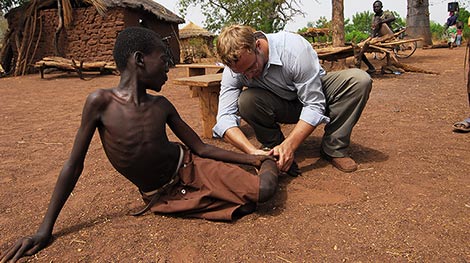 Weiss, who was named director of the Carter Center’s Guinea Worm Eradication Program a little more than a year ago, brings to the position both experience in the field and at the Center’s headquarters in Atlanta. With eight years living in Ghana and Ethiopia in many Guinea worm program roles, Weiss is uniquely positioned to understand the challenges of eradicating Guinea worm disease, an international campaign spearheaded by The Carter Center that has reduced cases more than 99.9% since 1986.
Learn more »
Weiss, who was named director of the Carter Center’s Guinea Worm Eradication Program a little more than a year ago, brings to the position both experience in the field and at the Center’s headquarters in Atlanta. With eight years living in Ghana and Ethiopia in many Guinea worm program roles, Weiss is uniquely positioned to understand the challenges of eradicating Guinea worm disease, an international campaign spearheaded by The Carter Center that has reduced cases more than 99.9% since 1986.
Learn more »
By Abeer Al Fouti, Executive Director of Global Initiatives, Alwaleed Philanthropies
You almost certainly have never heard of Guinea worm disease. It doesn’t generate news headlines, is not often top of mind for global health experts, and does not attract large-scale funding for eradication efforts. Yet we are close to eliminating this devastating disease, with just a final effort required to make it gone for good. Learn more »
When Dr. Moussa Saye was a boy, the rainy season brought great suffering to his village in the Bankass district of central Mali. “There were thousands of cases of Guinea worm in our village and other villages nearby,” he said. “There were whole families who couldn’t go to work. We called it ‘The Disease of No Food,’ because people couldn’t work in the fields and put away food.” Learn more »
 Just 28 human cases of Guinea worm disease were reported in 2018, down slightly from 30 cases reported in 2017. When The Carter Center began leading the international campaign to eradicate Guinea worm disease in 1986, there were an estimated 3.5 million cases annually in 21 countries.
Learn more »
Just 28 human cases of Guinea worm disease were reported in 2018, down slightly from 30 cases reported in 2017. When The Carter Center began leading the international campaign to eradicate Guinea worm disease in 1986, there were an estimated 3.5 million cases annually in 21 countries.
Learn more »
WHO Director-General Dr. Tedros Adhanom Ghebreyesus expresses support for the global campaign to eradicate Guinea worm disease and partner efforts to eliminate neglected tropical diseases. Dr. Tedros personally thanks former U.S. President Jimmy Carter for his leadership in the fight against Guinea worm and The Carter Center for being a cornerstone of the campaign. Learn more »
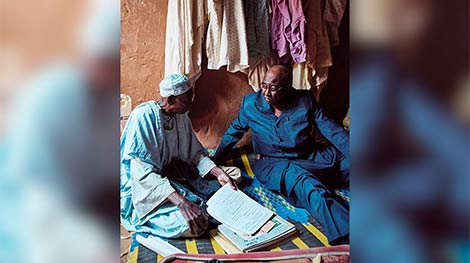 If you want to get things done in Niger, it helps to know Mohamed Salissou Kané. The Carter Center’s country representative in Niger seems to have connections everywhere.
Learn more »
If you want to get things done in Niger, it helps to know Mohamed Salissou Kané. The Carter Center’s country representative in Niger seems to have connections everywhere.
Learn more »
By Adamu Sallau, director, Carter Center health programs in Nigeria’s Imo and Abia states
Scientific or logistical challenges aren’t the only issues Carter Center personnel have to deal with while tracking down, treating, and preventing neglected tropical diseases in remote places. Cultural issues often play a role as well, and we have to handle them respectfully and sensitively. Learn more »
By Ambassador (ret.) Mary Ann Peters, chief executive officer
We all know Benjamin Franklin’s proverb “An ounce of prevention is worth a pound of cure.” It makes sense to try to keep a bad thing from happening rather than to try to fix the mess that results if you let the bad thing happen. This simple but profound principle is at work in everything we do at The Carter Center. Learn more »
Watch the video below to hear former U.S. President Jimmy Carter’s remarks at the 2017 World Health Organization’s Global Partners Meeting in Geneva on the worldwide effort to reduce the burden of neglected tropical diseases (NTDs). Learn more »
In case you missed the Center’s Facebook Live coverage of U.S. President Jimmy Carter and Dr. Donald Hopkins’ press conference on Jan. 11, 2017, an archived webcast of this event can be viewed below. Learn more »
In this exclusive interview, former U.S. President Jimmy Carter ventures behind-the-scenes of “Countdown to Zero: Defeating Disease,” an exhibition created in collaboration with the American Museum of Natural History, open at the Jimmy Carter Presidential Library and Museum through Oct. 9. Learn more »
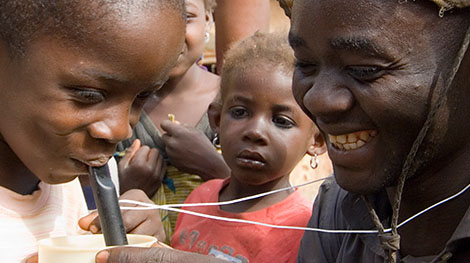 Using data-driven measurements and monitoring — and working closely with federal ministries of health and affected communities — the Carter Center-led Guinea worm eradication campaign has driven the global incidence of Guinea worm disease down more than 99.99 percent since 1986.
Learn more »
Using data-driven measurements and monitoring — and working closely with federal ministries of health and affected communities — the Carter Center-led Guinea worm eradication campaign has driven the global incidence of Guinea worm disease down more than 99.99 percent since 1986.
Learn more »
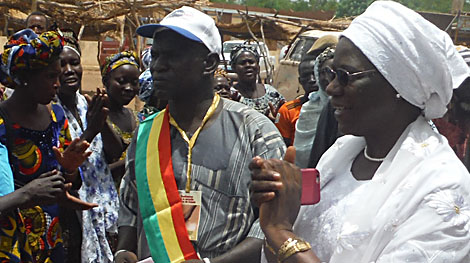 Dr. Marie Madeleine Togo is the minister of health for the Republic of Mali, responsible for protecting her almost 17 million fellow citizens from all kinds of diseases and dangers. That covers a lot of people and myriad maladies, but her work to eliminate Guinea worm disease goes beyond a professional interest in public health.
Learn more »
Dr. Marie Madeleine Togo is the minister of health for the Republic of Mali, responsible for protecting her almost 17 million fellow citizens from all kinds of diseases and dangers. That covers a lot of people and myriad maladies, but her work to eliminate Guinea worm disease goes beyond a professional interest in public health.
Learn more »
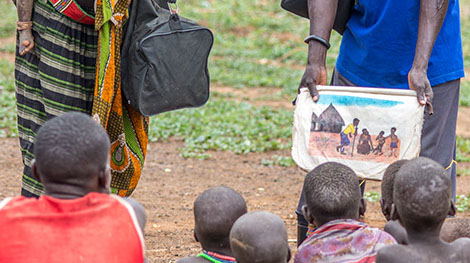 By spearheading eradication and elimination programs, The Carter Center works to wipe out preventable diseases in ways that help people acquire the tools, knowledge, and resources they need to transform their own lives.
Learn about five Carter Center health programs working to make preventable diseases a distant memory.
Learn more »
By spearheading eradication and elimination programs, The Carter Center works to wipe out preventable diseases in ways that help people acquire the tools, knowledge, and resources they need to transform their own lives.
Learn about five Carter Center health programs working to make preventable diseases a distant memory.
Learn more »
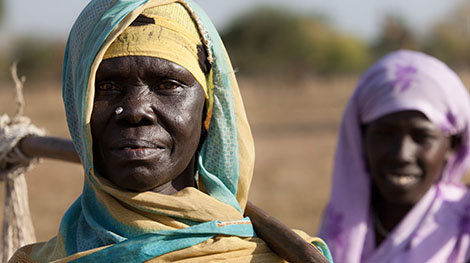 Using data-driven measurements and monitoring — and working closely with federal ministries of health and affected communities — the Carter Center-led Guinea worm eradication campaign has driven the global incidence of Guinea worm disease down to only 22 cases reported in 4 endemic countries in 2015, a reduction of more than 99.99 percent since 1986.
Learn more »
Using data-driven measurements and monitoring — and working closely with federal ministries of health and affected communities — the Carter Center-led Guinea worm eradication campaign has driven the global incidence of Guinea worm disease down to only 22 cases reported in 4 endemic countries in 2015, a reduction of more than 99.99 percent since 1986.
Learn more »
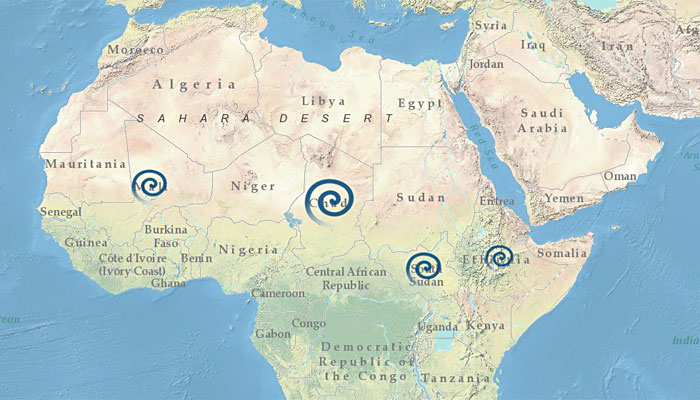 See where cases of Guinea worm were reported in 2016 and what the Center is doing to wipe them out.
Learn more »
See where cases of Guinea worm were reported in 2016 and what the Center is doing to wipe them out.
Learn more »
By Donald Hopkins, M.D., is special advisor, Guinea Worm Eradication Program, The Carter Center
Donald Hopkins, M.D., is special advisor to the Guinea Worm Eradication Program at The Carter Center and has been leading the effort to eradicate this neglected disease for over 25 years. Listen below as he tells NPR’s Robin Young about the Center’s efforts to rid the world of this ancient and painful affliction. Learn more »
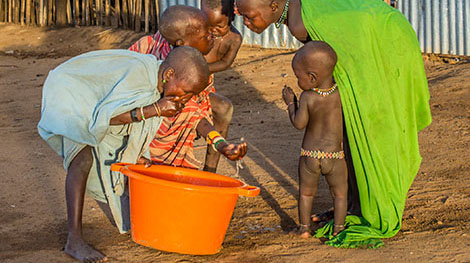 In 1999, Guinea worm disease took Nigerian farmer Abdullahi Rabiu to the edge. With a reported 84 worms exiting his body through skin blisters, Rabiu could do little more than hope to survive.
Learn more »
In 1999, Guinea worm disease took Nigerian farmer Abdullahi Rabiu to the edge. With a reported 84 worms exiting his body through skin blisters, Rabiu could do little more than hope to survive.
Learn more »
A special exhibition exploring the challenges and benefits of eradicating disease runs Jan. 13 – July 12, 2015, at the American Museum of Natural History. Countdown to Zero: Defeating Disease, developed in collaboration with The Carter Center, uses stunning photography, videography, and artifacts to highlight several global efforts to fight infections. Chief among these is the campaign led by The Carter Center that may soon eradicate Guinea worm disease. Learn more »
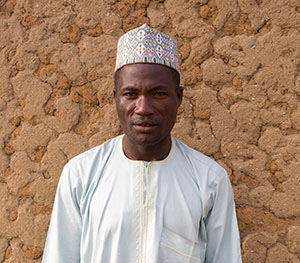 It is difficult to reconcile Abdullahi Rabiu with the world record he is believed to hold. An athletic feat or sportsman's event seems likely. But could this incredibly fit, healthy, energetic Nigerian really be the man known for having the most Guinea worms emerge from his body at one time? No one else is lining up to lay claim to his title or number: 84.
Learn more »
It is difficult to reconcile Abdullahi Rabiu with the world record he is believed to hold. An athletic feat or sportsman's event seems likely. But could this incredibly fit, healthy, energetic Nigerian really be the man known for having the most Guinea worms emerge from his body at one time? No one else is lining up to lay claim to his title or number: 84.
Learn more »
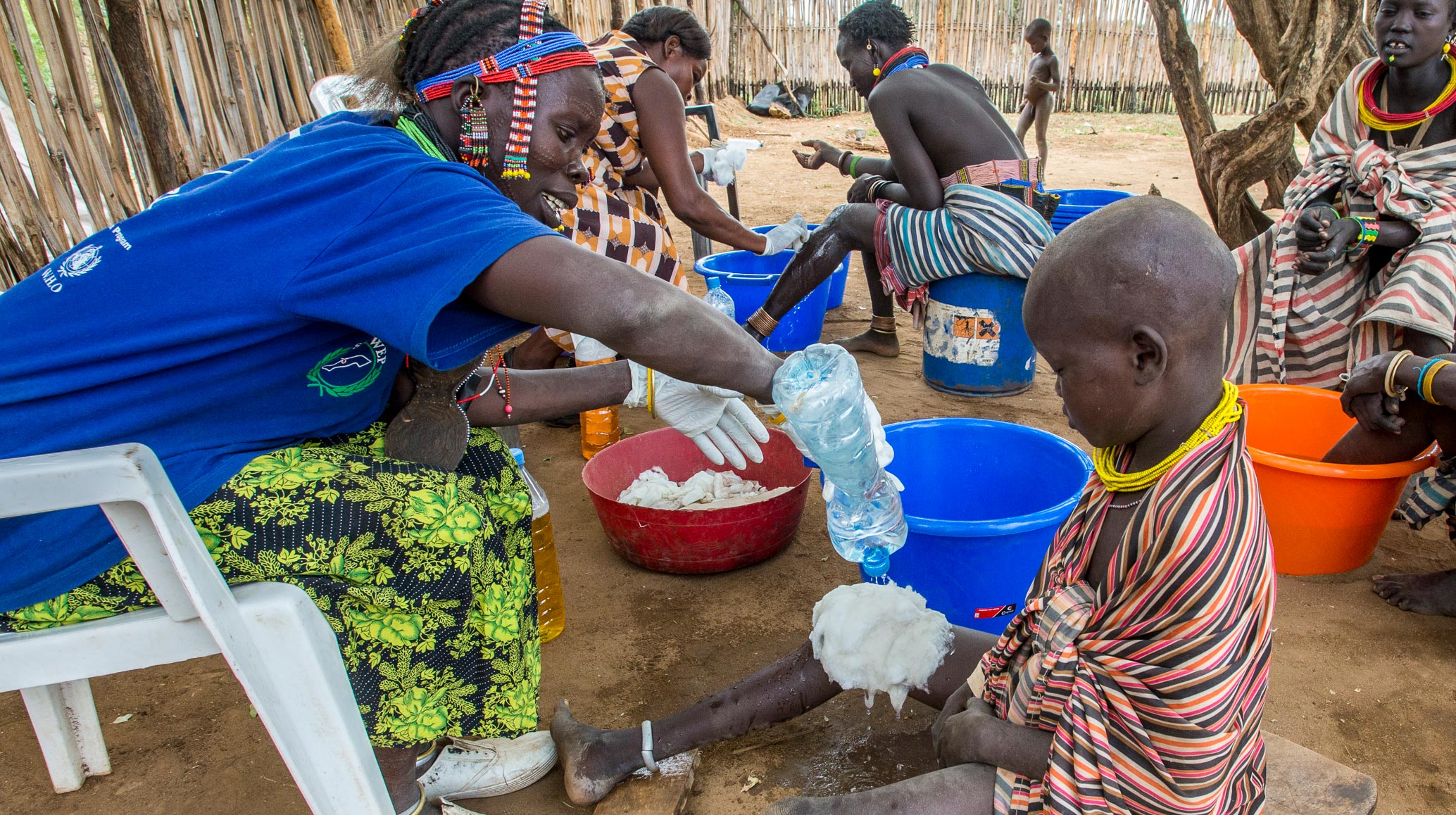 The Carter Center's pioneering efforts to eradicate Guinea worm disease in South Sudan are featured in the documentary "Lifelines: How to Slay a Dragon," which was broadcast outside the United States on Al Jazeera English.
Learn more »
The Carter Center's pioneering efforts to eradicate Guinea worm disease in South Sudan are featured in the documentary "Lifelines: How to Slay a Dragon," which was broadcast outside the United States on Al Jazeera English.
Learn more »
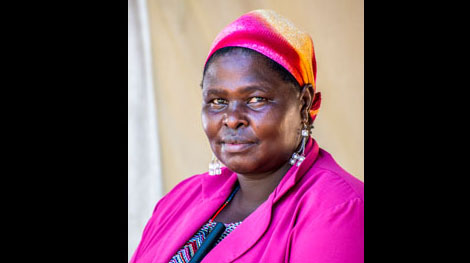 As a young Kenyan nurse, posted over ten years ago to a remote mission hospital in war-torn southern Sudan, Antonella Lomong'o was horrified by her first encounter with Guinea worm disease. "I saw this woman come crawling across the floor, crying out in pain," Lomong'o remembered. "She had several worms hanging off her leg, and I was shocked. I'd never seen this before."
Learn more »
As a young Kenyan nurse, posted over ten years ago to a remote mission hospital in war-torn southern Sudan, Antonella Lomong'o was horrified by her first encounter with Guinea worm disease. "I saw this woman come crawling across the floor, crying out in pain," Lomong'o remembered. "She had several worms hanging off her leg, and I was shocked. I'd never seen this before."
Learn more »
Tara Brant spent four-and-a-half years working in South Sudan on the front lines of the war on Guinea worm disease. She was a technical assistant and regional coordinator charged with ensuring each case of Guinea worm in her area was contained, educating communities on how to prevent the disease, and tracking down real and rumored outbreaks. She served in South Sudan from 2007 to 2009 and 2011 to 2013. She is currently a graduate student in Liverpool, England. Learn more »
“Today, let us renew our resolve to ensure that 2014 is the last year the world reports cases of Guinea worm disease.” – Former U.S. President Jimmy Carter Learn more »
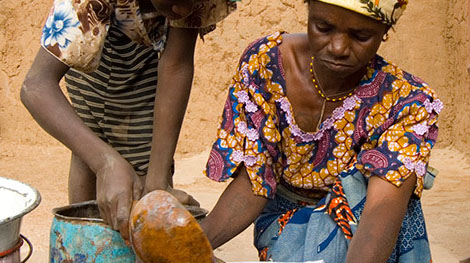 A leader in the eradication and elimination of diseases, The Carter Center is fighting six preventable diseases — Guinea worm, river blindness, trachoma, schistosomiasis, lymphatic filariasis, and malaria — by using health education and simple, low-cost methods.
The following slideshow illustrates some of the fundamental tools and approaches used by The Carter Center to help build a healthier and more peaceful world.
Learn more »
A leader in the eradication and elimination of diseases, The Carter Center is fighting six preventable diseases — Guinea worm, river blindness, trachoma, schistosomiasis, lymphatic filariasis, and malaria — by using health education and simple, low-cost methods.
The following slideshow illustrates some of the fundamental tools and approaches used by The Carter Center to help build a healthier and more peaceful world.
Learn more »
On Sept. 10, former U.S. President Jimmy Carter, New York Times Op-Ed Columnist Nicholas D. Kristof, and Carter Center disease eradication expert Dr. Donald R. Hopkins held a special video chat, “Global Health: How We Can Make a Difference,” to kick off a new series called Conversations on Google+ launching later this fall. Learn more »
During its commencement ceremonies May 30, Harvard University presented Carter Center Vice President of Health Programs Dr. Donald Hopkins with an honorary Doctor of Science degree for his leadership in disease eradication, particularly his work on the Center’s campaign to wipe out the water borne affliction Guinea worm disease. Learn more »
On March 5, the National Foundation for Infectious Diseases (NFID) awarded Dr. Adetokunbo O. Lucas the Jimmy and Rosalynn Carter Humanitarian Award for Dr. Lucas’ “outstanding humanitarian efforts and achievements that have contributed to improving the health of humankind.” The NFID, a nonprofit organization dedicated to educating the public and health care professionals about infectious disease, has given the award. Learn more »
There is no vaccine or medicine to fight Guinea worm disease; instead, The Carter Center uses four main interventions to lead the international campaign against the debilitating parasite. Learn more »
Former U.S. President Jimmy Carter and Carter Center Guinea worm experts Drs. Donald R. Hopkins and Ernesto Ruiz-Tiben will host a media roundtable via Google+ Hangout to announce the provisional Guinea worm case totals for 2012 and discuss significant progress in the international Guinea worm eradication campaign led by The Carter Center. Learn more »
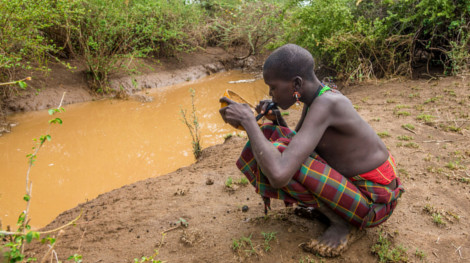 When The Carter Center began leading the battle against Guinea worm disease in 1986, some 3.5 million children and adults around the world suffered from it. Today the disease affects fewer than 200 people in isolated pockets of Sub-Saharan Africa. One of those places is South Sudan’s Equatoria State, where the South Sudan Guinea Worm Eradication Program — assisted by the Center and partners — is mounting an all-out effort to track down and treat every case and prevent new ones from breaking out. This story takes us to the frontlines where one of the final battles is taking place: Mogos, South Sudan.
Learn more »
When The Carter Center began leading the battle against Guinea worm disease in 1986, some 3.5 million children and adults around the world suffered from it. Today the disease affects fewer than 200 people in isolated pockets of Sub-Saharan Africa. One of those places is South Sudan’s Equatoria State, where the South Sudan Guinea Worm Eradication Program — assisted by the Center and partners — is mounting an all-out effort to track down and treat every case and prevent new ones from breaking out. This story takes us to the frontlines where one of the final battles is taking place: Mogos, South Sudan.
Learn more »
It’s the horrific plague, the “fiery serpent” of the Bible, found in Egyptian mummies, and may be the inspiration of the modern symbol for medicine. Found today only in the most isolated and neglected communities of the world, Guinea worm disease once afflicted approximately 3.5 million people in Africa and Asia. Learn more »
The Carter Center and BASF continue to work together to make medical history in Africa. The latest donation of nearly 6,000 liters of the BASF larvicide ABATE® will be used to combat Guinea worm and river blindness, two neglected tropical diseases that prey on some of the world’s most disadvantaged communities. Learn more »
An additional air date has been added across the U.S. for “Foul Water Fiery Serpent,” an independent documentary feature film that follows dedicated health workers — including Carter Center staff and national health partners, as well as former U.S. President Jimmy Carter — engaged in a final battle to eradicate Guinea worm disease in Africa. Learn more »
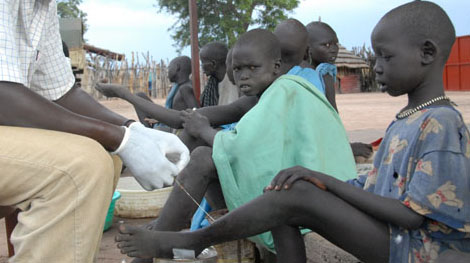 With fewer than 1,100 worldwide cases of Guinea worm disease reported in 2011, and fewer than 600 cases expected during 2012, experts believe the quarter-century-long eradication campaign, led by The Carter Center, is at a crucial tipping point.
Learn more »
With fewer than 1,100 worldwide cases of Guinea worm disease reported in 2011, and fewer than 600 cases expected during 2012, experts believe the quarter-century-long eradication campaign, led by The Carter Center, is at a crucial tipping point.
Learn more »
Legendary eradication expert Dr. Donald R. Hopkins received the prestigious Pumphandle Award June 3 from the Council of State and Territorial Epidemiologists (CSTE), honoring his outstanding contributions to applied epidemiology. Learn more »
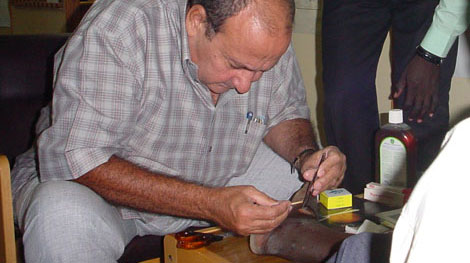 Ask about the time he nearly died from cerebral malaria during a Guinea worm surveillance trip, or his supervisory visit to a town under siege, or the nights he spent stuck in a car with no food, little water, and once with three flat tires, and Dr. Nabil Aziz Mikhail will tell you he doesn't like to sit in his office
Learn more »
Ask about the time he nearly died from cerebral malaria during a Guinea worm surveillance trip, or his supervisory visit to a town under siege, or the nights he spent stuck in a car with no food, little water, and once with three flat tires, and Dr. Nabil Aziz Mikhail will tell you he doesn't like to sit in his office
Learn more »
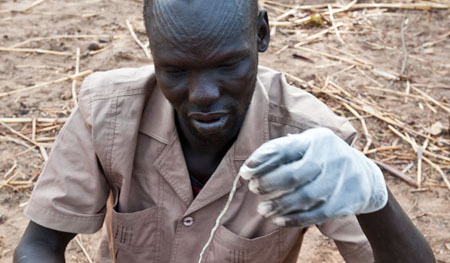 he Carter Center has become a global leader in the eradication and elimination of diseases, focusing efforts to build health and hope in some of the poorest and most isolated places on earth.
Learn more »
he Carter Center has become a global leader in the eradication and elimination of diseases, focusing efforts to build health and hope in some of the poorest and most isolated places on earth.
Learn more »
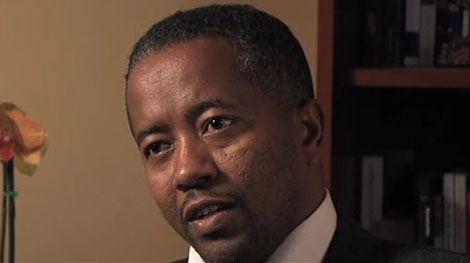 Zerihun Tadesse Gebrelassie barely remembers his mother rushing his baby brother to a hospital in Ethiopia. Many patients, long lines, and few health workers made her wish she had a relative — maybe one who was a nurse — who could help her son. His little brother survived, but Dr. Zerihun says his mother never forgot that scene.
Learn more »
Zerihun Tadesse Gebrelassie barely remembers his mother rushing his baby brother to a hospital in Ethiopia. Many patients, long lines, and few health workers made her wish she had a relative — maybe one who was a nurse — who could help her son. His little brother survived, but Dr. Zerihun says his mother never forgot that scene.
Learn more »
“Foul Water Fiery Serpent,” a documentary feature film that follows dedicated health workers — including Carter Center staff and national health partners, as well as former U.S. President Jimmy Carter — engaged in a final battle to eradicate Guinea worm disease in Africa, will air on American Public Television stations nationwide beginning April. Learn more »
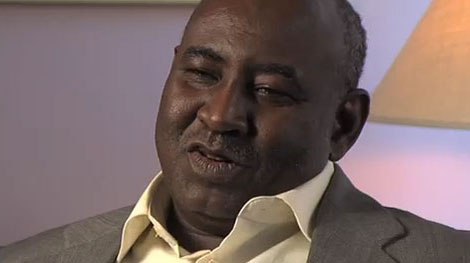 Completely eliminating a disease from a country twice the size of Texas is no easy task. Salissou Kane, the Carter Center's country representative for Niger learned this time and again during more than two decades fighting Guinea worm in his homeland. Now that the disease has been wiped out nationwide, Kane is using his hard-won knowledge of Niger's complex multicultural communities to tackle to the bacterial eye disease trachoma.
Learn more »
Completely eliminating a disease from a country twice the size of Texas is no easy task. Salissou Kane, the Carter Center's country representative for Niger learned this time and again during more than two decades fighting Guinea worm in his homeland. Now that the disease has been wiped out nationwide, Kane is using his hard-won knowledge of Niger's complex multicultural communities to tackle to the bacterial eye disease trachoma.
Learn more »
The Carter Center works in some of the world’s most remote and impoverished communities. These are areas beyond where the road ends, with no power grid, and limited access to outside markets. Learn more »
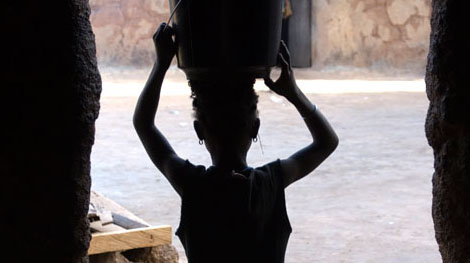 Once the second-most endemic country in the world, Ghana has stopped transmission of Guinea worm disease with no new cases of the parasitic disease reported for a full year in 2011. With an estimated 180,000 cases in 1989, Ghana’s successful grassroots elimination efforts have resulted in the promise of hopeful, productive lives for its citizens.
Learn more »
Once the second-most endemic country in the world, Ghana has stopped transmission of Guinea worm disease with no new cases of the parasitic disease reported for a full year in 2011. With an estimated 180,000 cases in 1989, Ghana’s successful grassroots elimination efforts have resulted in the promise of hopeful, productive lives for its citizens.
Learn more »
In London today, former U.S. President Jimmy Carter addressed an audience of international journalists and partners to announce that the Carter Center-led global campaign to eradicate Guinea worm disease has entered its final stage to end this gruesome waterborne parasitic infection. Learn more »
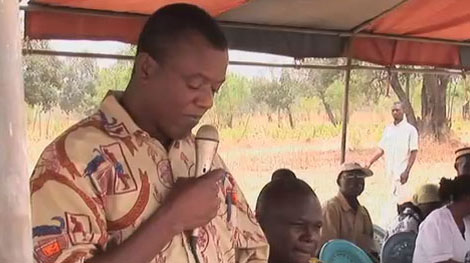 When Dr Andrew Seidu Korkor describes the debilitating pain caused by Guinea worm disease and how it devastates communities, he's not just making a professional observation. For this national manager of Ghana's Guinea Worm Eradication Program it's personal.
Learn more »
When Dr Andrew Seidu Korkor describes the debilitating pain caused by Guinea worm disease and how it devastates communities, he's not just making a professional observation. For this national manager of Ghana's Guinea Worm Eradication Program it's personal.
Learn more »
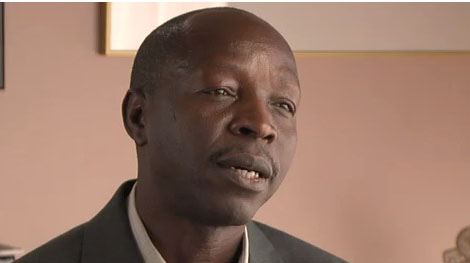 "I think I have something to share with another country" says Sadi Moussa, explaining why he recently relocated to Mali to help tackle public health problems after almost two decades doing similar work in his home country of Niger.
Learn more »
"I think I have something to share with another country" says Sadi Moussa, explaining why he recently relocated to Mali to help tackle public health problems after almost two decades doing similar work in his home country of Niger.
Learn more »
With approximately 95 percent of the world’s remaining Guinea worm cases, South Sudan looks to be the final battleground in the fight to wipe out this debilitating worm worldwide. The Southern Sudan Guinea Worm Eradication Program, together with The Carter Center, has almost 10,000 dedicated local health workers on the ground, working everywhere from the bustling capital of Juba to the most remote villages imaginable. Learn more »
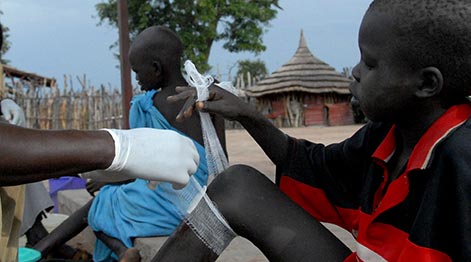 At bedtime, under a blue mosquito net, two boys lie on a mat and whisper secrets from the day just passed. Six-year-old Thon Mayom falls asleep quickly. He is exhausted from two sessions that day to treat a worm emerging from his knee. His 5-year-old brother, Mawut, drifts off to sleep too. His job is to look after his big brother during the difficult treatment.
Learn more »
At bedtime, under a blue mosquito net, two boys lie on a mat and whisper secrets from the day just passed. Six-year-old Thon Mayom falls asleep quickly. He is exhausted from two sessions that day to treat a worm emerging from his knee. His 5-year-old brother, Mawut, drifts off to sleep too. His job is to look after his big brother during the difficult treatment.
Learn more »
The Carter Center’s health programs enabled a record 35.8 million treatments in 2010 to protect against neglected tropical diseases (NTDs) in thousands of communities in some of the most remote and forgotten places in Africa and the Americas. Learn more »
The Carter Center Awards for Guinea Worm Eradication were presented to Nigeria and Niger during a special ceremony held Feb. 17, 2011, in Atlanta, Ga. The two countries, which share a border, join 14 other nations that have wiped out Guinea worm disease since The Carter Center spearheaded the international eradication campaign in 1986. Learn more »
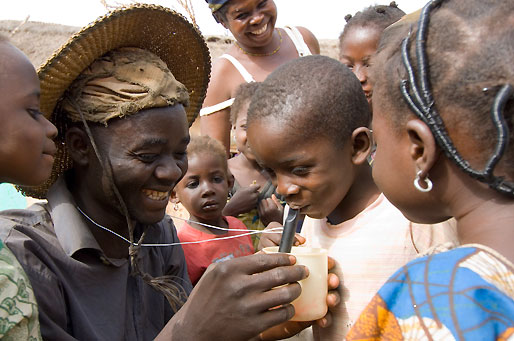 Former U.S. President and Carter Center Founder Jimmy Carter announced today that only three endemic countries remain in the fight against Guinea worm disease, poised to be only the second disease in history—after smallpox—to be eradicated.
Learn more »
Former U.S. President and Carter Center Founder Jimmy Carter announced today that only three endemic countries remain in the fight against Guinea worm disease, poised to be only the second disease in history—after smallpox—to be eradicated.
Learn more »
Despite challenges posed by insecurity in Southern Sudan, the region continues to see major reductions in cases of Guinea worm disease. From January to September 2010, only 1,549* cases were identified compared to 2,523 cases over the same period in 2009. Learn more »
Today, during a special ceremony in Atlanta, former U.S. President and Carter Center Founder Jimmy Carter received on behalf of The Carter Center two new pledges—$500,000 toward the Guinea Worm Eradication Program and $500,000 toward the Onchocerciasis Elimination Program for the Americas (OEPA)—from the OPEC Fund for International Development (OFID), represented by His Excellency Director General Suleiman Jasir Al-Herbish. Learn more »
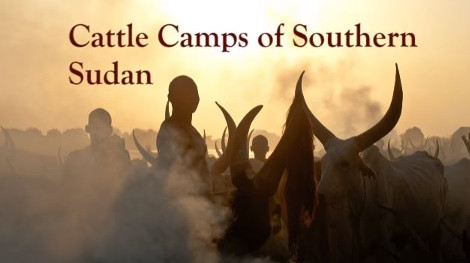
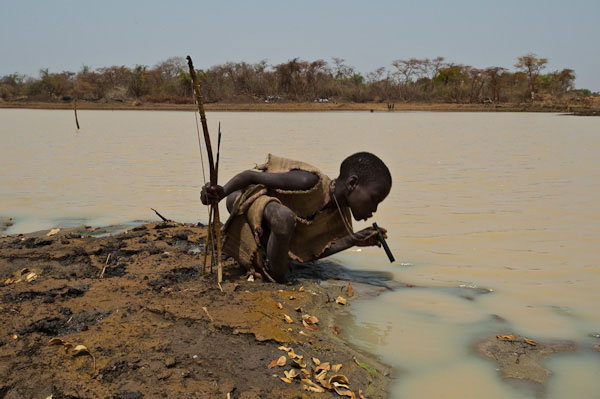 The Carter Center-led drive to eradicate Guinea worm disease gained significant momentum in 2009, with an all-time low of 3,190* total cases reported -- a 31 percent decrease from 2008.
Learn more »
The Carter Center-led drive to eradicate Guinea worm disease gained significant momentum in 2009, with an all-time low of 3,190* total cases reported -- a 31 percent decrease from 2008.
Learn more »
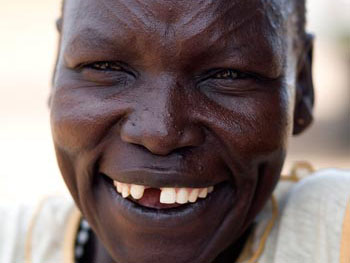 It is early morning in Molujore village of Terekeka County in Southern Sudan, and Viviana Kolong, a 30-year-old mother of three, dresses carefully in a cool, yellow and white cotton dress and orange flip flops, adding a black bracelet and white beaded rosary to complete her outfit. As the wind picks up and the temperature starts its punishing rise, Kolong leaves her mud hut, passing by her home's empty grain stores. As usual, it will be a long day.
Learn more »
It is early morning in Molujore village of Terekeka County in Southern Sudan, and Viviana Kolong, a 30-year-old mother of three, dresses carefully in a cool, yellow and white cotton dress and orange flip flops, adding a black bracelet and white beaded rosary to complete her outfit. As the wind picks up and the temperature starts its punishing rise, Kolong leaves her mud hut, passing by her home's empty grain stores. As usual, it will be a long day.
Learn more »
The Carter Center is hosting its 2009 health program reviews March 23-31, 2010, with experts from around the world –including representatives from partner organizations including the Bill & Melinda Gates Foundation, Lions Clubs International, the World Health Organization, UNICEF, and the Centers for Disease Control and Prevention – gathered in Atlanta to assess program status and adopt recommendations for the coming year. Learn more »
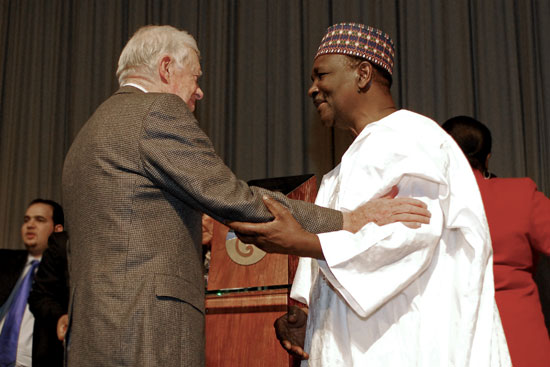 The last case of Guinea worm disease in Nigeria was suffered by Grace Otubu, 58, of Ezza Nkwubor village in Enugu state, whose worm emerged in November 2008. Twelve months later, Nigeria triumphed over the ancient, crippling affliction, also known as dracunculiasis, that had affected hundreds of thousands of Nigerians at its peak. The success of Africa's most populous nation against this debilitating waterborne parasite would not have been possible without the hard work of the endemic communities, the relentless vigilance of the national program, and the dedication of Gen. Dr. Yakubu Gowon, Nigeria's former head of state.
Learn more »
The last case of Guinea worm disease in Nigeria was suffered by Grace Otubu, 58, of Ezza Nkwubor village in Enugu state, whose worm emerged in November 2008. Twelve months later, Nigeria triumphed over the ancient, crippling affliction, also known as dracunculiasis, that had affected hundreds of thousands of Nigerians at its peak. The success of Africa's most populous nation against this debilitating waterborne parasite would not have been possible without the hard work of the endemic communities, the relentless vigilance of the national program, and the dedication of Gen. Dr. Yakubu Gowon, Nigeria's former head of state.
Learn more »
Former U.S. President Jimmy Carter, Central Equatoria State Governor Clement Wani Konga, and Commissioner Clement Maring Samuel today urged intensification of efforts to wipe out Guinea worm disease, a waterborne parasitic infection, in the remote village of Molujore, Terekeka County, Southern Sudan. The village visit was followed by a press conference at the Assembly Hall in Juba, with representatives from Sudan's Ministry. Learn more »
Former U.S. President Jimmy Carter and his wife, Rosalynn, are in Sudan—the world’s most Guinea worm-endemic country—to personally appeal for completing eradication of the crippling waterborne parasite as soon as possible and to urge peace and stability in the nation as it prepares for its first multi-party elections in 24 years in April, which the Carter Center’s international election observation team will monitor. Learn more »
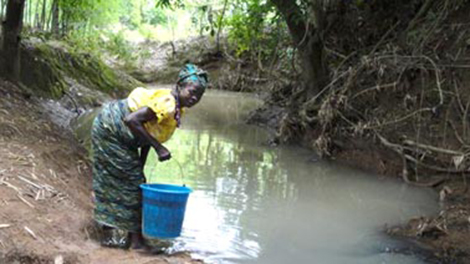 In Ezza Nkwubor village in southeastern Nigeria, 58-year-old Grace Otubo sits on a wooden bench and touches her right heel, recalling where a Guinea worm painfully emerged in November 2008. She didn't know it at the time, but her Guinea worm would be the last one from Nigeria.
Learn more »
In Ezza Nkwubor village in southeastern Nigeria, 58-year-old Grace Otubo sits on a wooden bench and touches her right heel, recalling where a Guinea worm painfully emerged in November 2008. She didn't know it at the time, but her Guinea worm would be the last one from Nigeria.
Learn more »
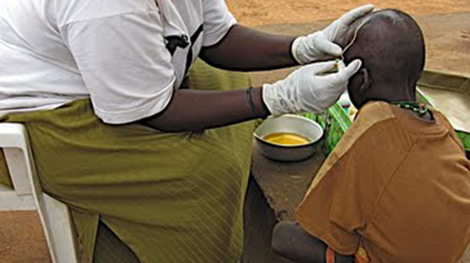 Five-year-old Lotepi Lokusi's mother was worried. Although she knew it was common for a Guinea worm to emerge from a foot or an ankle, she had never seen one migrate to the face. Clearly visible just under his skin--from one jaw line to the other — a Guinea worm was winding its way higher each day, toward her little boy's scalp.
Learn more »
Five-year-old Lotepi Lokusi's mother was worried. Although she knew it was common for a Guinea worm to emerge from a foot or an ankle, she had never seen one migrate to the face. Clearly visible just under his skin--from one jaw line to the other — a Guinea worm was winding its way higher each day, toward her little boy's scalp.
Learn more »
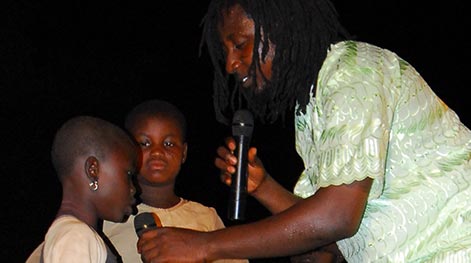 It is dusk in northern Ghana and communities reverberate with the local mosque's call to prayer. The setting sun has fallen beyond the concrete buildings that flank the market square, casting everyone in deep purple shadow. Thousands of people are making their way to this rural outpost, the current epicenter of the country's decades-long battle to eradicate Guinea worm disease.
Learn more »
It is dusk in northern Ghana and communities reverberate with the local mosque's call to prayer. The setting sun has fallen beyond the concrete buildings that flank the market square, casting everyone in deep purple shadow. Thousands of people are making their way to this rural outpost, the current epicenter of the country's decades-long battle to eradicate Guinea worm disease.
Learn more »
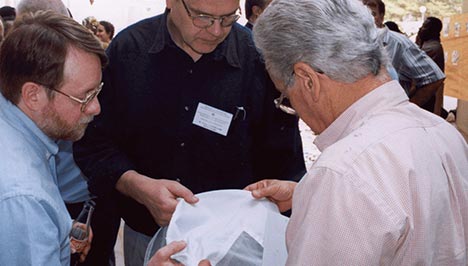 For Craig Withers, the Carter Center's director of program support, the bumblebee is the perfect symbol of success.
Learn more »
For Craig Withers, the Carter Center's director of program support, the bumblebee is the perfect symbol of success.
Learn more »
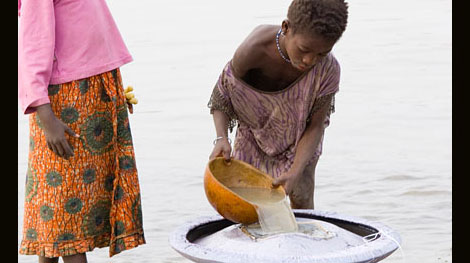 In 2007, Sadia Mesuna—a young girl from Savelugu town in Northern Ghana—spent two agonizing months in a Carter Center Guinea worm containment center with 20 other children suffering from the disease. Today, Sadia, 7, is Guinea worm-free and has returned to school. This is her story of triumph and a new life without fear.
Learn more »
In 2007, Sadia Mesuna—a young girl from Savelugu town in Northern Ghana—spent two agonizing months in a Carter Center Guinea worm containment center with 20 other children suffering from the disease. Today, Sadia, 7, is Guinea worm-free and has returned to school. This is her story of triumph and a new life without fear.
Learn more »
 In 2007, Sadia Mesuna—a young girl from Savelugu town in Northern Ghana—spent two agonizing months in a Carter Center Guinea worm containment center with 20 other children suffering from the disease. Today, Sadia, 7, is Guinea worm-free and has returned to school. This is her story of triumph and a new life without fear.
Learn more »
In 2007, Sadia Mesuna—a young girl from Savelugu town in Northern Ghana—spent two agonizing months in a Carter Center Guinea worm containment center with 20 other children suffering from the disease. Today, Sadia, 7, is Guinea worm-free and has returned to school. This is her story of triumph and a new life without fear.
Learn more »
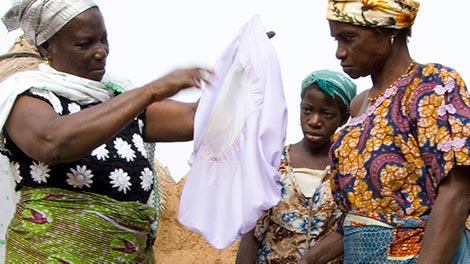 The countdown to complete elimination of Guinea worm disease is ticking closer to zero. Ethiopia, Cote d'Ivoire, Burkina Faso and Togo now have joined the list of countries reporting an end to transmission of the disease. The Carter Center leads the international coalition fighting the disease.
Learn more »
The countdown to complete elimination of Guinea worm disease is ticking closer to zero. Ethiopia, Cote d'Ivoire, Burkina Faso and Togo now have joined the list of countries reporting an end to transmission of the disease. The Carter Center leads the international coalition fighting the disease.
Learn more »
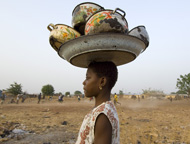 A little more than a year ago, 10-year-old Hubeida Iddirisu faced long days of pain as three Guinea worms began to emerge from blisters on her body. Every day for two weeks, a volunteer came to her home in Savelugu town, Ghana, to extract the worms slowly by rolling them on pieces of gauze, a little each day. As is the case with most Guinea worm disease victims, Iddirisu was unable to handle her household tasks while the worms were emerging. Her family relies on her income from selling charcoal.
Learn more »
A little more than a year ago, 10-year-old Hubeida Iddirisu faced long days of pain as three Guinea worms began to emerge from blisters on her body. Every day for two weeks, a volunteer came to her home in Savelugu town, Ghana, to extract the worms slowly by rolling them on pieces of gauze, a little each day. As is the case with most Guinea worm disease victims, Iddirisu was unable to handle her household tasks while the worms were emerging. Her family relies on her income from selling charcoal.
Learn more »
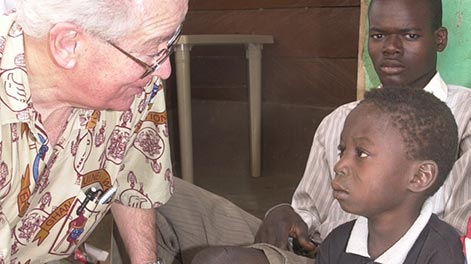 Fifteen years ago, Dr. Ernesto Ruiz-Tiben, then in his early 50s, was contemplating retirement. He had served 27 years as a commissioned officer of the U.S. Public Health Service at the Centers for Disease Control and Prevention, and was thinking about starting a new career and traveling.
Learn more »
Fifteen years ago, Dr. Ernesto Ruiz-Tiben, then in his early 50s, was contemplating retirement. He had served 27 years as a commissioned officer of the U.S. Public Health Service at the Centers for Disease Control and Prevention, and was thinking about starting a new career and traveling.
Learn more »
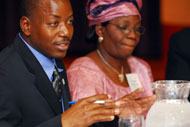 As a child growing up in the small village of Dakore in Burkina Faso, Dr. Dieudonné Sankara saw firsthand the debilitating affects of Guinea worm disease.
Learn more »
As a child growing up in the small village of Dakore in Burkina Faso, Dr. Dieudonné Sankara saw firsthand the debilitating affects of Guinea worm disease.
Learn more »
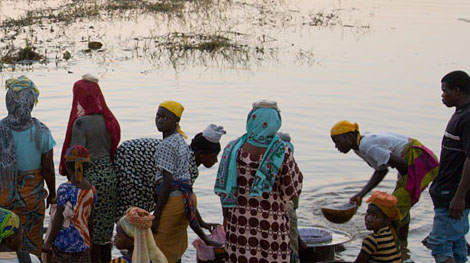 A few days in the life of a Ghanaian child shows the disabling misery caused by Guinea worm disease, which The Carter Center has been campaigning to eradicate for 22 years. In early 2007, there was a massive outbreak of the disease in Ghana, with Savelugu, Sadia's hometown, located in the Northern Region, at its epicenter. In response, the national program - in partnership with The Carter Center - set up Guinea worm case containment care centers to identify, treat, and educate the victims, most of whom are children. Here is Sadia's story:
Learn more »
A few days in the life of a Ghanaian child shows the disabling misery caused by Guinea worm disease, which The Carter Center has been campaigning to eradicate for 22 years. In early 2007, there was a massive outbreak of the disease in Ghana, with Savelugu, Sadia's hometown, located in the Northern Region, at its epicenter. In response, the national program - in partnership with The Carter Center - set up Guinea worm case containment care centers to identify, treat, and educate the victims, most of whom are children. Here is Sadia's story:
Learn more »
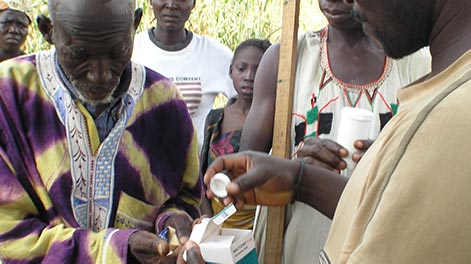 To help combat neglected tropical diseases suffered by millions of people, the Bill & Melinda Gates Foundation has pledged $10 million to fund two groundbreaking Carter Center initiatives in Nigeria.
Learn more »
To help combat neglected tropical diseases suffered by millions of people, the Bill & Melinda Gates Foundation has pledged $10 million to fund two groundbreaking Carter Center initiatives in Nigeria.
Learn more »
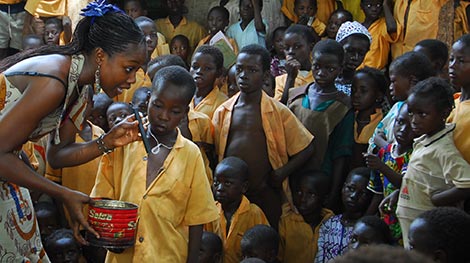 In the community of Tampiong in northern Ghana, Miss Ghana 2005, Lamisi Mbillah, balanced on her high heel sandals, lifts a small black pipe filter above her head so that the hundreds of school children surrounding her could see it. She selects a shy little boy from the crowd to demonstrate how the filter works. The boy complies, using the pipe filter as a straw to drink from the container of water in Mbillah's hand.
Learn more »
In the community of Tampiong in northern Ghana, Miss Ghana 2005, Lamisi Mbillah, balanced on her high heel sandals, lifts a small black pipe filter above her head so that the hundreds of school children surrounding her could see it. She selects a shy little boy from the crowd to demonstrate how the filter works. The boy complies, using the pipe filter as a straw to drink from the container of water in Mbillah's hand.
Learn more »
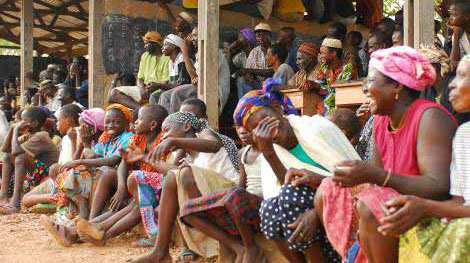 Two actors take the stage and make wild cartoonish gestures and snappy remarks. This is not the latest sitcom in Hollywood or a new Broadway production but a drama about Guinea worm disease in rural Ghana.
Learn more »
Two actors take the stage and make wild cartoonish gestures and snappy remarks. This is not the latest sitcom in Hollywood or a new Broadway production but a drama about Guinea worm disease in rural Ghana.
Learn more »
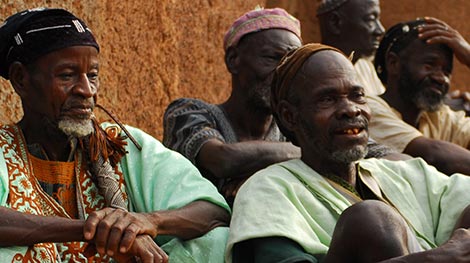 The muddy pond is as brown as the hillsides surrounding it. It is the peak of dry season in Ghana and Chief Tahanaa looks over the water he has been drinking since he was a child.
Learn more »
The muddy pond is as brown as the hillsides surrounding it. It is the peak of dry season in Ghana and Chief Tahanaa looks over the water he has been drinking since he was a child.
Learn more »
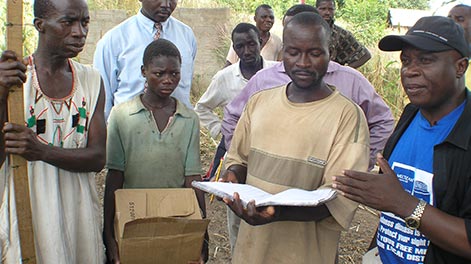 His name means "water" and "life" in the Southeastern region of his native Nigeria, and perhaps no name could be more appropriate for Dr. Emmanuel Miri, resident technical adviser for the Carter Center's health programs in Nigeria.
Learn more »
His name means "water" and "life" in the Southeastern region of his native Nigeria, and perhaps no name could be more appropriate for Dr. Emmanuel Miri, resident technical adviser for the Carter Center's health programs in Nigeria.
Learn more »
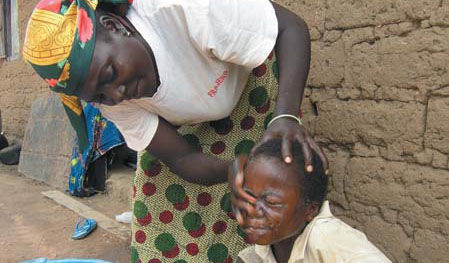 Imagine a nation almost half the size of the United States where large portions of the population are sick -- not with just one disease but several at once. Such is the daily reality for those living in Nigeria, a nation with one of the highest burdens of disease in Africa.
Learn more »
Imagine a nation almost half the size of the United States where large portions of the population are sick -- not with just one disease but several at once. Such is the daily reality for those living in Nigeria, a nation with one of the highest burdens of disease in Africa.
Learn more »
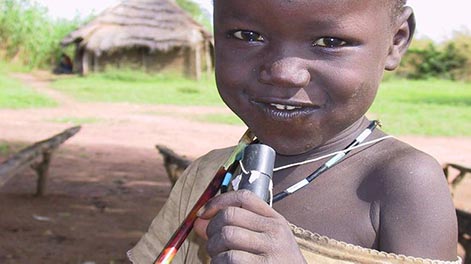 Dr. Nabil Azziz and Dr. Achol Marial live in and love the same country. Both are medical doctors with families and both head health organizations. But their country - Sudan - has been torn by a devastating civil war for the past 20 years. Medically, they are united in the fight against Guinea worm disease. The doctors met at The Carter Center in September 2003.
Learn more »
Dr. Nabil Azziz and Dr. Achol Marial live in and love the same country. Both are medical doctors with families and both head health organizations. But their country - Sudan - has been torn by a devastating civil war for the past 20 years. Medically, they are united in the fight against Guinea worm disease. The doctors met at The Carter Center in September 2003.
Learn more »
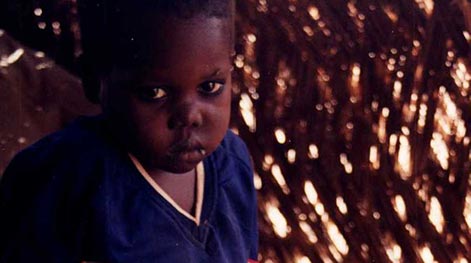 In a makeshift Guinea worm care center in Savelugu-Nanton, Ghana, 6-year-old Lukma receives treatment for a worm emerging from a blister on the top of his left foot. Abukari Abukari, a local health worker, questions Lukma's mother about her water-filtering practices, reminding her that she must filter all of the family's drinking water to prevent the disease from occurring.
Learn more »
In a makeshift Guinea worm care center in Savelugu-Nanton, Ghana, 6-year-old Lukma receives treatment for a worm emerging from a blister on the top of his left foot. Abukari Abukari, a local health worker, questions Lukma's mother about her water-filtering practices, reminding her that she must filter all of the family's drinking water to prevent the disease from occurring.
Learn more »
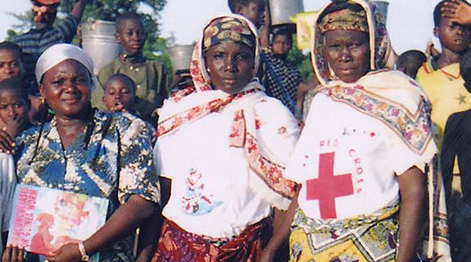 Ridding a country of its last few thousand cases of Guinea worm disease presents a special challenge. Those cases exist mostly in remote areas, where there are few wells and people draw their drinking water from ponds sometimes rife with Guinea worm larvae.
Learn more »
Ridding a country of its last few thousand cases of Guinea worm disease presents a special challenge. Those cases exist mostly in remote areas, where there are few wells and people draw their drinking water from ponds sometimes rife with Guinea worm larvae.
Learn more »
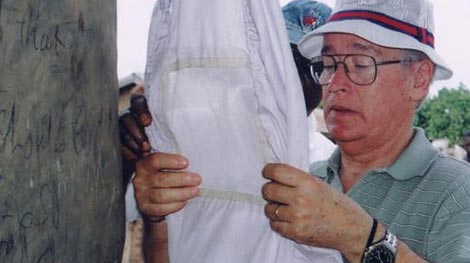 Many Americans have never heard of dracunculiasis or more commonly, Guinea worm disease, a painful condition that is contracted when a person consumes water contaminated with water fleas carrying infective larvae. Dr. Ernesto Ruiz-Tiben, however, has had Guinea worm on his mind for the past 20 years.
Learn more »
Many Americans have never heard of dracunculiasis or more commonly, Guinea worm disease, a painful condition that is contracted when a person consumes water contaminated with water fleas carrying infective larvae. Dr. Ernesto Ruiz-Tiben, however, has had Guinea worm on his mind for the past 20 years.
Learn more »
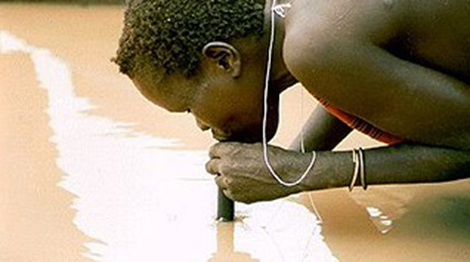 The Carter Center staff coordinating the Guinea Worm Eradication Program in each country cannot be everywhere all the time. Yet, as long as this crippling disease is active anywhere in a region, eradicating it requires a nearly continuous presence in the endemic areas--mostly to prevent disease transmission.
Learn more »
The Carter Center staff coordinating the Guinea Worm Eradication Program in each country cannot be everywhere all the time. Yet, as long as this crippling disease is active anywhere in a region, eradicating it requires a nearly continuous presence in the endemic areas--mostly to prevent disease transmission.
Learn more »
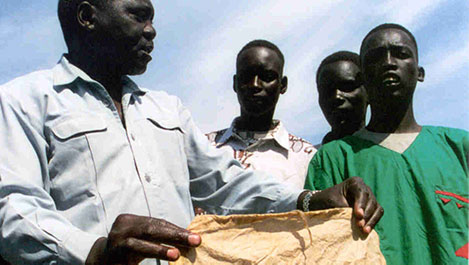 Ermino Emilio cannot stop the war that has plagued his country for decades, but he can help people in his region of southern Sudan by protecting them from the further torment of Guinea worm disease. Ermino is the Carter Center's regional coordinator for fighting that disease in Sudan's Bahr el Ghazal Zone, a zone fragmented by the two main warring parties in Sudan.
Learn more »
Ermino Emilio cannot stop the war that has plagued his country for decades, but he can help people in his region of southern Sudan by protecting them from the further torment of Guinea worm disease. Ermino is the Carter Center's regional coordinator for fighting that disease in Sudan's Bahr el Ghazal Zone, a zone fragmented by the two main warring parties in Sudan.
Learn more »
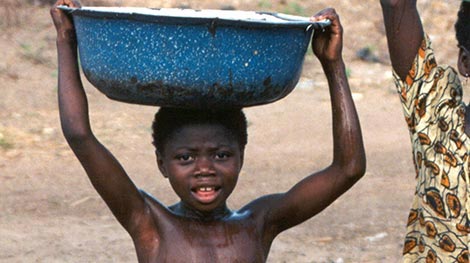 The Carter Center leads the global campaign to eradicate Guinea worm disease in the countries that remain endemic. Among the most endemic is Togo, where Carter Center Public Relations Coordinator Emily Howard witnessed the debilitating impact that the preventable disease has caused. She observed the crusade of health workers in the field to build hope for millions. Following is her three-part account.
Learn more »
The Carter Center leads the global campaign to eradicate Guinea worm disease in the countries that remain endemic. Among the most endemic is Togo, where Carter Center Public Relations Coordinator Emily Howard witnessed the debilitating impact that the preventable disease has caused. She observed the crusade of health workers in the field to build hope for millions. Following is her three-part account.
Learn more »
Guinea worm, beware. This was the message at the Seventh African Regional Conference on Guinea Worm Eradication held this spring in Bamako, Mali. More than 200 warriors in the battle against the dreaded disease gathered to plot their strategy for the final push toward eradication. Learn more »